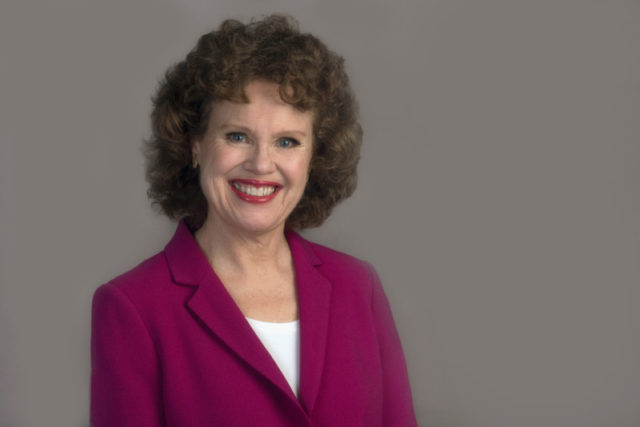Senior Sociopaths: Antisocial Behavior After Age 50

Sociopaths are all serial killers, right? Well, some are, but most sociopaths never kill anyone. Instead, they blend easily into society. Maybe your boss or co-worker is a sociopath. Maybe your neighbor is disordered. Or maybe, like me, you married a sociopath.
My husband claimed to be an entrepreneur, a screenwriter and a war hero. Actually, he was a con artist. This guy took $227,000 from me, cheated with at least 6 different women in our 2.5-year relationship, had a child with one of the women, and then 10 days after I left him, married the mother of the child. It was the second time he committed bigamy.
I was 40 years old when I met him online. He told me he was 49. Then, saying he couldn’t bear to lie to me, he confessed that he was 51. Actually, he was 55.
So the entire time he was scamming me — and multiple other women — he was between the ages of 55 and 58.
After I left him, I learned that he was a sociopath. I didn’t know what that meant, so I started researching. You can imagine my surprise and confusion when I kept coming across mental health professionals and psychology researchers saying that sociopaths burned out in their 40s and stopped their antisocial behavior.
My husband was 55 when he started working on me. I found evidence of the many women he swindled before me, when he was in his 40s, and the women he continued to swindle after me, well into his 60s. He certainly didn’t burn out. He kept getting worse.

Educating the public about sociopaths
Because of my experience, I created Lovefraud.com to warn people about the smooth-talking con artists living among us. I heard from many readers, both women and men, who found themselves entangled with abusers, liars and con artists who were also aged 40 or older. They weren’t burning out. What in the world were these psychology experts talking about?
I wanted to gather data. So I posted a survey on Lovefraud, asking people to describe their experiences with people whom they believed were sociopaths and were age 50 or older. A total of 2,190 people completed the survey, and the stories they told were shocking. There were tales of unbelievable deception, manipulation, exploitation, abuse — including child abuse, double lives, criminal behavior and downright cruelty. All perpetrated by supposedly mature individuals.
I’ve written a book about my research called, Senior Sociopaths — How to Recognize and Escape Lifelong Abusers. It’s the first book to examine antisocial behavior in the over-50 crowd. This is a far bigger problem than anyone realizes. In America, 14 million people over age 50 could be diagnosed with antisocial, narcissistic, borderline or histrionic personality disorders, or psychopathy. On Lovefraud.com, I refer to all of them collectively as sociopaths.
Most of the survey respondents were women who described their spouses or romantic partners. But I also heard from people who wrote about their parents, siblings, family members, in-laws, friends, neighbors, bosses or co-workers.

Sociopathic behavior at work
In the survey, 62 people described someone who was strictly a work colleagues or business associate. I asked them what behaviors they observed. Here are the top responses:
Senior sociopath behavior at work (N=42). The individual:
- manipulates others in the organization — 81%
- blames someone else — 76%
- cannot be trusted — 74%
- causes turmoil among co-workers — 69%
- has people above him or her in the organization fooled — 62%
- promises but does not deliver — 60%
- is a bully — 55%
- takes credit for work that others did — 55%
- has violated policy or the law, but has gotten away with it — 55%
So what does this look like on the job? Here are a few quotes from survey respondents:
- He stopped my promotion by lying to our superiors. I was transferred to another office to be away from him and he went over our manager to the CEO to have me returned to the previous office working under him again.
- I watch her love bomb anyone she perceives as being potentially useful to her in the future. If she has a complaint with higher-ups she dupes other coworkers into complaining to the boss so she can stay in her role as nice and fun. For her amusement she suckers nice people into doing things for her that she is very capable of doing herself.
- He is very deceitful and manipulative. He refused to do the work as discussed. And he hides information so people cannot make informed decisions.
Most survey respondents were traumatized by the experience, no matter what type of relationship it was. Almost everyone reported anxiety, depression, or post-traumatic stress disorder. Many said the involvement made them ill. And about a third of respondents considered or attempted suicide — all because of actions the sociopaths took while over the age of 50.
Business plus personal relationships
But it gets worse. An additional 283 survey respondents had both business and personal relationships with the senior sociopaths. Some were romantic partners and business partners. Some worked in the family business.
Although purely business involvements with sociopaths are damaging, the combination of business and personal relationships is downright destructive. Here’s what the survey respondents reported:
Harm endured by survey respondents (Business relationships N = 37, Business plus personal relationships, N = 235)
- Lost money — 59% of business relationships, 71% of business plus personal relationships
- Emotional abuse — 69% of business relationships, 95% of business plus personal relationships
- PTSD — 47% of business relationships, 72% of business plus personal relationships
- Life threatened — 12% of business relationships, 29% of business plus personal relationships
What’s with the burnout?
So why were the so-called “experts” saying that antisocial behavior burned out?
Essentially, researchers have known for a couple hundred years that criminal behavior, as measured by arrests and convictions, peaks about age 22 and then drops off. This is true.
From this fact, experts seem to have drawn the conclusion that because criminal arrests drop off, antisocial behavior also drops off. But there are multiple problems with this conclusion.
First of all, arrests and convictions are not the only indicator of antisocial behavior. Secondly, older people are more likely getting away with crimes —research shows that cops and prosecutors don’t want to go after grandma or grandpa. And finally, multiple psychology researchers acknowledge that typical evaluation methods may not be gathering accurate data on older populations.
My book contains real evidence that sociopaths do not burn out. Instead, they continue their abusive behavior until the day they die.
So if you have a senior sociopath in your life, what do you do? I address that in the last two chapters. Chapter 8 is entitled, “Dealing with the Sociopath.” Survey respondents revealed how they escaped, if they could, and how they coped, if they couldn’t.
Chapter 9 is about recovery from the sociopath. Survey respondents offered their advice, which could be summarized into three approaches: Educate yourself about what sociopaths are, figure out why you were vulnerable, and commit to working on your recovery.
If someone over age 50 is still making your life miserable, there is no point waiting for them to change. Senior sociopaths never calm down and never grow up. Therapy does not work. The best thing you can do is disconnect from the person. If you can get them out of your life, great. If that’s not possible, keep contact to a minimum and disconnect emotionally.
This guest post was authored by Donna Andersen

Donna Andersen is creator of Lovefraud.com, a website that teaches people to recognize and recover from sociopaths. She is the author of eight books, including Senior Sociopaths — How to recognize and escape lifelong abusers (May 2022), Red Flags of Love Fraud—10 signs you’re dating a sociopath, the Red Flags of Love Fraud Workbook and the four-part Best of the Lovefraud Blog series. She learned about sociopaths the hard way, by marrying one, and tells the whole outrageous story in her first book, Love Fraud.
Donna founded Lovefraud Education and Recovery, a nonprofit that offers webinars to help survivors and professionals identify, escape and recover from sociopaths, including narcissists, psychopaths and other manipulators. She is co-author of two scientific papers and has presented research to the Society for the Scientific Study of Psychopathy.

